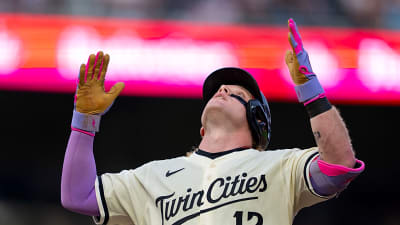
The Toronto Raptors may have secured Brandon Ingram’s long-term future, but keeping their core intact without crossing into the luxury tax is shaping up to be a major financial challenge.
Let’s start with the numbers: Ingram’s new three-year, $120 million contract will start at $38.1 million next season, per HoopsHype’s Michael Scotto and ESPN. That’s lower than expected, as initial projections had him seeking closer to $45 million per year.
With Ingram’s deal finalized, the Raptors now have $177.3 million committed to 11 players next season, including Jamison Battle, whose contract is only partially guaranteed. That leaves Toronto with just $10.6 million in space below the luxury tax threshold to fill three or four remaining roster spots and maintain flexibility for in-season moves.
Of that, roughly $2 million will go to their second-round pick, and another $2 million is expected to be used on a minimum-contract signing, leaving just $6.6 million in breathing room.
That’s where the luxury tax gymnastics come in.
Toronto’s exact draft position remains unknown, but if the Raptors land a pick higher than ninth ($6.3 million cap hit), they’ll cross into the tax. Winning the No. 1 pick ($13.8 million) would push them deep into tax territory, forcing some tough financial decisions.
The simplest solution? Just pay the tax. Ownership has the financial means, and if the goal is to keep this core intact, that’s the cost of doing business. But history suggests that’s unlikely. The Raptors have only paid into the tax once since the earliest days of the franchise—when they were on their way to winning a championship in 2018-19. It’s hard to imagine them doing it now for a team that has yet to prove it’s even a playoff-caliber group.
So, will they do it?
“I think we’ve always said, listen, we’re going into the luxury tax when we want to be competitive,” Raptors general manager Bobby Webster said.
That leaves plenty of room for interpretation.
Toronto isn’t in a rush to shed salary, and luxury tax payments aren’t calculated until the end of the season. That means the Raptors could start next year above the tax line, make a cost-cutting move at the trade deadline, and still avoid the tax if needed.
But any lottery luck this spring could accelerate the clock on a breakup of at least part of this core—sooner rather than later.
Further Reading
More must-reads:
- Surprising update emerges about Jayson Tatum's recovery
- Report: Knicks made a signing based on Giannis Antetokounmpo trade belief
- The 'NBA Summer League MVPs' quiz
Breaking News
Trending News
Customize Your Newsletter
 +
+
Get the latest news and rumors, customized to your favorite sports and teams. Emailed daily. Always free!








